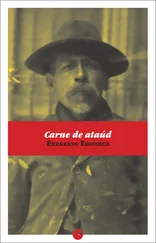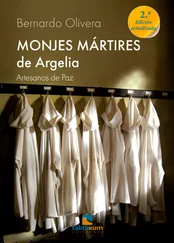Bernardo Atxaga - Obabakoak
Здесь есть возможность читать онлайн «Bernardo Atxaga - Obabakoak» весь текст электронной книги совершенно бесплатно (целиком полную версию без сокращений). В некоторых случаях можно слушать аудио, скачать через торрент в формате fb2 и присутствует краткое содержание. Год выпуска: 2010, Издательство: Graywolf Press, Жанр: Современная проза, на английском языке. Описание произведения, (предисловие) а так же отзывы посетителей доступны на портале библиотеки ЛибКат.
- Название:Obabakoak
- Автор:
- Издательство:Graywolf Press
- Жанр:
- Год:2010
- ISBN:нет данных
- Рейтинг книги:3 / 5. Голосов: 1
-
Избранное:Добавить в избранное
- Отзывы:
-
Ваша оценка:
- 60
- 1
- 2
- 3
- 4
- 5
Obabakoak: краткое содержание, описание и аннотация
Предлагаем к чтению аннотацию, описание, краткое содержание или предисловие (зависит от того, что написал сам автор книги «Obabakoak»). Если вы не нашли необходимую информацию о книге — напишите в комментариях, мы постараемся отыскать её.
Obabakoak
The Observer
Obabakoak — читать онлайн бесплатно полную книгу (весь текст) целиком
Ниже представлен текст книги, разбитый по страницам. Система сохранения места последней прочитанной страницы, позволяет с удобством читать онлайн бесплатно книгу «Obabakoak», без необходимости каждый раз заново искать на чём Вы остановились. Поставьте закладку, и сможете в любой момент перейти на страницу, на которой закончили чтение.
Интервал:
Закладка:
“Perfect! Just what I need! A Rhine wine!” agreed Klaus enthusiastically. But his enthusiasm rang false.
When the waiter disappeared among the columns, Klaus tried to fix his attention on the trees, still full of sun, in the Stadtpark, or on the tropical fish in the aquarium. But it was in vain that he tried to redirect his thoughts. Again and again they returned to the savarin scandinave that had made a fool out of him. All morning he’d been the sleeping fish he wanted to be, thinking he was being borne along on a gentle current. A dream, nothing but a dream. A slight disturbance of the waters was all it had taken for him to wake and realize that the current didn’t exist. He wasn’t in the sea, he wasn’t in a river; he was in a fish tank, just like those tropical fish in the restaurant. Except the fish tank he lived in was smaller. It suffocated him, made him sweat.
“It’s all your fault, Klaus,” said the sharp voice.
Alexander’s reproaches increased the anxiety he was feeling at that moment and he was pleased to hear the waiter’s voice at his side. He had brought him the bottle of Rhine wine.
“Would you like to taste it, monsieur ?”
The wine was the color of amber. Klaus nodded.
“Do you have any paper?” he asked, after approving the quality of the wine.
“Paper, monsieur ?” The waiter wore a look of incomprehension. “To write a few short notes. Can’t waste any time, you know. I’d like to, but I can’t.”
“Now you’ve got it, Klaus. Now you’re talking,” he heard inside him and Klaus smiled with satisfaction. Alexander’s voice was no longer sharp.
“Would a few postcards do?” said the waiter, going over to the sideboard beneath the aquarium. “There’s a picture of the restaurant on the front,” he went on, returning to the table and placing a few cards on the cloth.
“Fine, Marcel. Many thanks. They’ll do nicely,” said Klaus picking up the wine bottle and refilling his glass.
He addressed the first note to his company’s personnel director. He justified his absence from work — as well as his presence in an expensive restaurant — with an allusion to a sudden decision to get married. He hoped he would understand and assured him that he would be back on the van as soon as possible.
However, the tone of the note changed in the last two lines. The postscript read:
“I shouldn’t be away for much more than thirty years. And I would be most grateful if by that time you could be dead.”
Klaus heard Alexander giggling inside him and he too laughed. He knew the head of personnel very well and could imagine his hysterical cries when he finished reading the card. That’s why he wrote to him, just to sour his life a little.
“You should have killed him,” whispered Alexander.
“Be quiet, silly,” Klaus said, but affectionately, the way one says such things to children. That amber-colored wine was putting him in a good mood.
He took more trouble over the second note and was still finishing it when the crêpes de roquefort arrived on the table.
“Your little fish bids you farewell, forever. By the time you receive this postcard, I’ll be far away. I know you won’t understand but it doesn’t matter. You never understood about Alexander and that doesn’t matter either. I doubt that you’ll miss me. It’s better this way. I’d write more but I don’t know what to say. Have fun.”
He signed both cards, wrote the addresses and handed them to the waiter.
“Could you make sure these get posted, Marcel?”
“Of course, monsieur. We’ll post them tomorrow.”
“Thank you, Marcel.”
“I think you may need more wine, monsieur, ” remarked the waiter, pointing to the almost empty bottle on the table.
“Yes, bring me another bottle, please. I always need to be in a good mood before I can write,” smiled Klaus. The waiter returned his smile and served him what remained of the first bottle.
Neither the wine nor the meal agreed with him. He grew hotter and hotter and when — as he was trying to do justice to the savarin —he took off his jacket, he saw with disgust that the sweat from his armpits had darkened the blue of his shirt. The stains were even visible in the distorted image one of the golden columns gave back.
“The bill, please!” he shouted suddenly and all the remaining customers in the restaurant turned around to look at him. He had decided to abandon that disgusting savarin and leave as soon as possible. He needed air, he was suffocating. “Marcel, the bill!” he cried again.
The waiter ran over to him, taking short steps to disguise his haste.
“You’re leaving, monsieur ? You don’t want anything else?” His face bore an expression of alarm.
“Yes, I want to leave!” Klaus’s right hand grasped one of the corners of the tablecloth.
“Please, be patient. I’ll bring you your bill right away. I’m so sorry, monsieur. ”
“No, no, I’m sorry, it’s just that I have to go home,” said Klaus, excusing himself and lowering his voice. After all the shouting he felt empty and drained. His head felt heavy.
“I’ll be back in a minute, monsieur. ”
His head not only felt heavy now, it was spinning too and he had difficulty getting up from the table. Afterward, when he had already bumped into the aquarium twice, he decided to lean against one of the columns and wait there for them to bring him the bill.
“Lovely fish, Marcel, really lovely,” he remarked when the waiter returned. He paid for the meal with two one-hundred-mark notes. “Keep the change,” he added. The change was forty marks.
“How generous you’ve become, Klaus! You can tell you’re drunk.”
Alexander’s voice contained an obvious note of mockery.
“Thank you very much, monsieur, ” the waiter said, almost bowing.
“Don’t forget the postcards, please. They’re most important to me. I’m serious, Marcel. Affairs of the heart. You know what I mean.”
He found it difficult to enunciate, his tongue got entangled with the words.
“Don’t worry, monsieur. I won’t forget.” The waiter was gradually, gently, hustling him toward the door.
“Anyway,” Klaus began, stopping and turning around, “the fish on the island of turtles are much prettier. I mean it. Much much prettier. You get some really incredible fish there.”
“Of course, monsieur. Would you like me to call you a taxi? I’ll call you a taxi if you want me to. It’s no bother.”
“I may not have appreciated that savarin as I should have, Marcel. I’m sorry. If you only knew…,” said Klaus, with a look of genuine desolation. The fact that he had been unable to finish that dish began to take on great significance for him. It symbolized all the other failures in his life.
“Another day, monsieur. Come back another day. You’ll really enjoy it then, you’ll see. We all have our off days,” the waiter said consolingly, sighing.
“I don’t think I’ll be able to come back, Marcel. Seriously. Really. In a few hours…”
“Shut up, Klaus. You’re a fool. You always have been,” he heard a voice say inside him.
Klaus was almost on the point of revealing his travel plans to the waiter, despite Alexander. But one glance at the aquarium stopped him. The tropical fish were all gathered in one corner of the tank, observing him gravely. They didn’t think much of his attitude either. Why was he talking so much? Didn’t he know when to shut up? His brain was unworthy of a fish. He couldn’t see the warning signs.
Klaus put a finger to his lips.
“Shut up!” he said to himself.
Читать дальшеИнтервал:
Закладка:
Похожие книги на «Obabakoak»
Представляем Вашему вниманию похожие книги на «Obabakoak» списком для выбора. Мы отобрали схожую по названию и смыслу литературу в надежде предоставить читателям больше вариантов отыскать новые, интересные, ещё непрочитанные произведения.
Обсуждение, отзывы о книге «Obabakoak» и просто собственные мнения читателей. Оставьте ваши комментарии, напишите, что Вы думаете о произведении, его смысле или главных героях. Укажите что конкретно понравилось, а что нет, и почему Вы так считаете.











